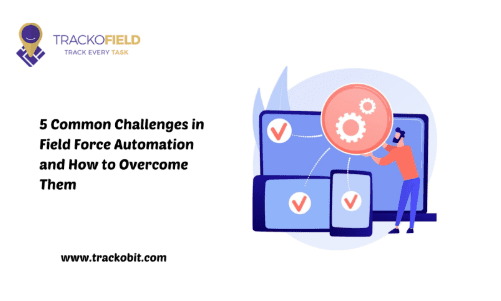Today, smart innovations are reshaping our everyday lives. One of such greatest innovations is the Internet of Things (IoT). Connected devices and the data collected by their sensors are making a big impact in every facet of the business; the retail industry is no exception. IoT is revolutionizing the way customers implement online shopping.
The retail industry is in a great transition, indeed pushed by technological advancements. IoT is a network of physical devices, appliances or other objects with sensors embedded inside to collect real-time data without human intervention.
IoT influences the retail ecosystem by improving efficiency and customer experience as it can connect several devices and gather data. It is evident that IoT influences the retail industry immensely and that the market size of IoT in the retail sector is estimated to reach USD 94.44 billion in 2025.
How does IoT influence the retail industry?
Let’s go through the few areas where IoT helps the retail industry to streamline its operations and enhance overall efficiency. In this article, we shall break down each of these key areas. Read on!
1. Inventory Management
In the past, before the advent of IoT, retailers needed help in maintaining optimal levels of inventory. It further leads to several issues, such as either stockouts or overstocking goods. But on the other hand, in smart retailing, with the help of IoT-enabled sensors, retailers can keep tabs on inventory status in real-time. Often, these sensors are placed on products, even on shelves and transport vehicles. It allows retailers to monitor the movement of goods from warehouses to the stores. By analysing the data collected, retailers can streamline and optimize inventory levels, ensure that the in-demand products are stocked and help minimize wastage to a greater extent. With the help of IoT, retailers can optimize the supply chain, minimize cost and enhance customer satisfaction.
2. Smart Stores
Another use case of IoT in the retail sector is the establishment of inter-connected smart stores. You might have heard about IoT devices such as smart shelves, digital signage and so forth. These devices can transform ordinary brick-and-mortar shopping experiences into customized shopping experiences. Indeed, it uses targeted marketing to offer customized promotions to improve sales. Digital signage helps retailers show interactive content based on customer preferences. Beacons enable sending personalized offers and product recommendations to customers’ devices when they shop online. On the other hand, smart shelves with sensors identify when stock runs low and help with the reordering process.
3. Smart Payments
Besides the above, IoT in the retail industry allows retailers to make smart payment systems. With the help of IoT, they can implement contactless payments effortlessly. For instance, they can implement mobile payment terminals where customers make safe payments without physical cards or cash. Furthermore, the application of IoT in the retail sector allows integration between offline and online shopping. Using an IoT-enabled terminal, customers can add products to their virtual carts with the help of any smart devices and make payments at a physical brick-and-mortar store. These technological advancements enhance the payment experience, minimize waiting time, and improve customer satisfaction.
4. Customer Data Analysis
In addition to inventory management, smart stores and smart payment systems, IoT is helping the retail industry collect and analyse customer data in real time. With the rapid increase in the application of IoT, the retail industry gathers valuable data about customers, which further provides information on customer behavior, preferences and shopping patterns. The collected data is used for personalizing the marketing through targeted product promotions. With the help of data analysis, retailers get a clear idea about customer preferences, and it helps them deliver customized services. It further aims to improve customer retention and helps retailers streamline marketing strategies.
Possible Risks and Challenges of IoT in the Retail Industry
IoT offers several benefits to the retail industry. However, there is always a concern about information and data security. When there are numerous connected devices, the chances of data breaches are high. To cope with this, retailers should adopt strong security protection to safeguard their customer data.
Another challenge is implementing IoT solutions; retailers should invest in infrastructure and connectivity. They have to assess the expenses and advantages of adopting IoT solutions. Additionally, they have to create complete strategies to ensure successful implementation.
Bottom Line
Overall, IoT is revolutionizing the retail sector in several ways. All the above use cases of IoT in the retail industry aim to enhance efficiency in operations and customer experience and foster business potential. At the same time, retailers must also take care of data security threats when adopting IoT.
After addressing all loopholes, the right implementation would help retailers offer personalized shopping experiences for their customers. If you want to take full advantage of the most advanced technology to empower your online retail business, ensure you implement IoT services in the first place. Rely on an industry leader who can support your needs and fly high in your business!

As the editor of the blog, She curate insightful content that sparks curiosity and fosters learning. With a passion for storytelling and a keen eye for detail, she strive to bring diverse perspectives and engaging narratives to readers, ensuring every piece informs, inspires, and enriches.










